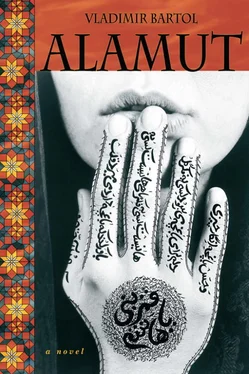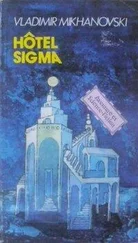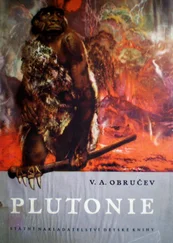Vladimir Bartol - Alamut
Здесь есть возможность читать онлайн «Vladimir Bartol - Alamut» весь текст электронной книги совершенно бесплатно (целиком полную версию без сокращений). В некоторых случаях можно слушать аудио, скачать через торрент в формате fb2 и присутствует краткое содержание. Город: Berkeley, Год выпуска: 2012, ISBN: 2012, Издательство: North Atlantic Books, Жанр: Историческая проза, на английском языке. Описание произведения, (предисловие) а так же отзывы посетителей доступны на портале библиотеки ЛибКат.
- Название:Alamut
- Автор:
- Издательство:North Atlantic Books
- Жанр:
- Год:2012
- Город:Berkeley
- ISBN:9781583946954
- Рейтинг книги:2.8 / 5. Голосов: 5
-
Избранное:Добавить в избранное
- Отзывы:
-
Ваша оценка:
- 60
- 1
- 2
- 3
- 4
- 5
Alamut: краткое содержание, описание и аннотация
Предлагаем к чтению аннотацию, описание, краткое содержание или предисловие (зависит от того, что написал сам автор книги «Alamut»). Если вы не нашли необходимую информацию о книге — напишите в комментариях, мы постараемся отыскать её.
Alamut — читать онлайн бесплатно полную книгу (весь текст) целиком
Ниже представлен текст книги, разбитый по страницам. Система сохранения места последней прочитанной страницы, позволяет с удобством читать онлайн бесплатно книгу «Alamut», без необходимости каждый раз заново искать на чём Вы остановились. Поставьте закладку, и сможете в любой момент перейти на страницу, на которой закончили чтение.
Интервал:
Закладка:
A hustle and bustle reminiscent of a beehive greeted the grandson of Tahir. He looked around in astonishment. Several military units were exercising on the central terrace. He heard the sharp commands, the clanking of shields and lances, the rattle of sabers. In the midst of it a horse would neigh or a donkey bray.
Other men were reinforcing the walls. Donkeys were hauling heavy rocks which the workers then lifted into place with pulleys. Shouts boomed out from all directions, drowning out the sound of the rapids completely.
They dismounted, and the commander asked a soldier walking by, “Is Captain Manuchehr in the guardhouse?”
The soldier came to an abrupt halt and replied, “Yes, he is, Sergeant Abuna.”
The commander signaled to the young man to follow him. They turned toward one of the two lower towers. From somewhere came the sound of short, sudden blows accompanied by groans of pain. The grandson of Tahir turned in the direction of the groans. A man, his back bared down to the waist, stood tied to a stone pillar. A huge Moor dressed in short striped trousers and a red fez stood lashing the man’s bare skin with a whip woven together from short straps. With each blow his skin broke in a new place and blood dripped from the wounds. A soldier stood by with a bucket of water in hand and every now and then doused the victim.
Seeing the horror in the eyes of Tahir’s grandson, Sergeant Abuna laughed scornfully.
“We don’t sleep in featherbeds here, and we don’t anoint ourselves with amber,” he said. “If that’s what you were expecting, you were seriously mistaken.”
The grandson of Tahir walked silently alongside him. As much as he would have liked to know what the poor man had done to be punished so harshly, a strange anxiety had stolen his courage to ask.
They passed into the tower entrance. Beneath its vaults the grandson of Tahir realized just how mighty the fortress walls were. Whole strata of rock lay one on top of the other. A dark, damp stairway led them upstairs. They passed through a long corridor and from there into a spacious room whose floor was covered with a simple carpet. Several pillows were strewn about in the corner, and on them half sat and half lay a man of about fifty. He was well fed and had a short, curled beard shot here and there with filaments of silver. He wore a large white turban, and his coat was embroidered in silver and gold. Sergeant Abuna bowed and waited for the man on the pillows to speak.
“What’s this you bring me, Abuna?”
“We caught this boy on reconnaissance, Captain Manuchehr. He says he was coming to Alamut.”
At these words the captain slowly rose, and the grandson of Tahir saw rising up before him a man as big as a mountain. He planted his fists at his sides, fixed his gaze on the boy, and shouted in a booming voice, “Who are you, wretch?”
The grandson of Tahir flinched, but he quickly recalled his father’s words and remembered that he had come to the castle of his own free will to offer himself in service. Regaining his composure, he replied calmly, “My name is Avani and I’m the grandson of Tahir of Sava, whom the grand vizier ordered beheaded many years ago.”
The captain looked at him half in surprise and half in disbelief.
“Are you telling the truth?”
“Why should I lie, sir?”
“If this is so, then know that your grandfather’s name is written in gold letters in the hearts of all Ismailis. Our Master will be pleased to count you among his warriors. That is why you’ve come to the castle?”
“Yes, to serve the supreme commander of the Ismailis and to avenge my grandfather.”
“Good. What have you learned?”
“Reading and writing, sir. Also grammar and verse making. I know almost half the Koran by heart.”
The captain smiled.
“Not bad. How about the military arts?”
The grandson of Tahir felt at a loss.
“I can ride horseback, shoot with a bow, and I can manage with a sword and spear.”
“Do you have a wife?”
The young man blushed deeply.
“No, sir.”
“Have you indulged in debauchery?”
“No, sir.”
“Good.”
Captain Manuchehr turned to the sergeant.
“Abuna! Take ibn Tahir to dai Abu Soraka. Tell him that I’ve sent him. Unless I’m completely mistaken, he’ll be glad to have him.”
They both bowed and left the captain’s chamber, and shortly they were back in the courtyard. The pillar to which the man being flogged had been bound was now free. Only a few drops of blood testified to what had happened there. Ibn Tahir still felt a faint shudder, but now he was filled with a sense of his own safety, since clearly it meant something to be the grandson of the martyr Tahir.
They turned up the steps leading to the center terrace. To their right was a low building, perhaps a barrack. The sergeant stopped in front of it and glanced around, as if looking for someone.
A dark-skinned youth in a white cloak, white trousers and white fez came hurrying past. The sergeant stopped him and said politely, “The captain has sent me with this young fellow to his worship dai Abu Soraka.”
“Come with me,” the dark-skinned youth grinned broadly. “His worship the dai is just now teaching us poetry. We’re on the roof.” And, turning to ibn Tahir, he said, “Are you here to become a feday? There are quite a few surprises in store for you. I’m novice Obeida.”
Ibn Tahir followed him and the sergeant without having quite understood.
They came out onto the rooftop, the floor of which was covered with coarsely woven rugs. Some twenty youths, each of them dressed in white just like Obeida, sat on the rugs, knees and feet to the floor. At their knees they each held a tablet on which they wrote down whatever was dictated by an old man in a white cloak sitting in front of them with a book in hand.
The teacher rose when he saw the newcomers. His face knitted into ill-tempered wrinkles, he asked the sergeant, “What do you want from us at this hour? Can’t you see a lesson is underway?”
The sergeant coughed nervously while novice Obeida imperceptibly blended in among his companions, who were curiously inspecting the stranger.
Abuna said, “Forgive me for bothering you during instruction, reverend dai. The captain has sent me with this young man, whom he wants you to have.”
The old missionary and teacher studied ibn Tahir from head to toe.
“Who are you and what do you want, boy?”
Ibn Tahir bowed respectfully.
“My name is Avani and I’m the grandson of Tahir, whom the grand vizier had beheaded in Sava. My father has sent me to Alamut to serve the Ismaili cause and to avenge the death of my grandfather.”
The old man’s face brightened. He ran to ibn Tahir with outstretched arms and heartily embraced him.
“Happy eyes that see you in this castle, grandson of Tahir! Your grandfather was a good friend of mine and of Our Master. Abuna, go and thank the captain for me. And you, young men, take a good look at your new companion. When I tell you the history and struggles of the Ismailis I won’t be able to bypass the famous grandfather of this young man, the Ismaili Tahir, who became the first martyr for our cause in Iran.”
The sergeant winked at ibn Tahir, as if to say job well done, and then vanished through the opening that led downstairs. Dai Abu Soraka squeezed the young man’s hand, asked him about his father and how things were at home, and promised to announce his arrival to the supreme commander. Finally he ordered one of the novices sitting on the floor. “Suleiman, take ibn Tahir to the bedroom and show him the place of that good-for-nothing who got banished to the foot soldiers. Make sure he washes the dust off himself and changes his clothes so that he’s ready for evening prayers.”
Читать дальшеИнтервал:
Закладка:
Похожие книги на «Alamut»
Представляем Вашему вниманию похожие книги на «Alamut» списком для выбора. Мы отобрали схожую по названию и смыслу литературу в надежде предоставить читателям больше вариантов отыскать новые, интересные, ещё непрочитанные произведения.
Обсуждение, отзывы о книге «Alamut» и просто собственные мнения читателей. Оставьте ваши комментарии, напишите, что Вы думаете о произведении, его смысле или главных героях. Укажите что конкретно понравилось, а что нет, и почему Вы так считаете.












